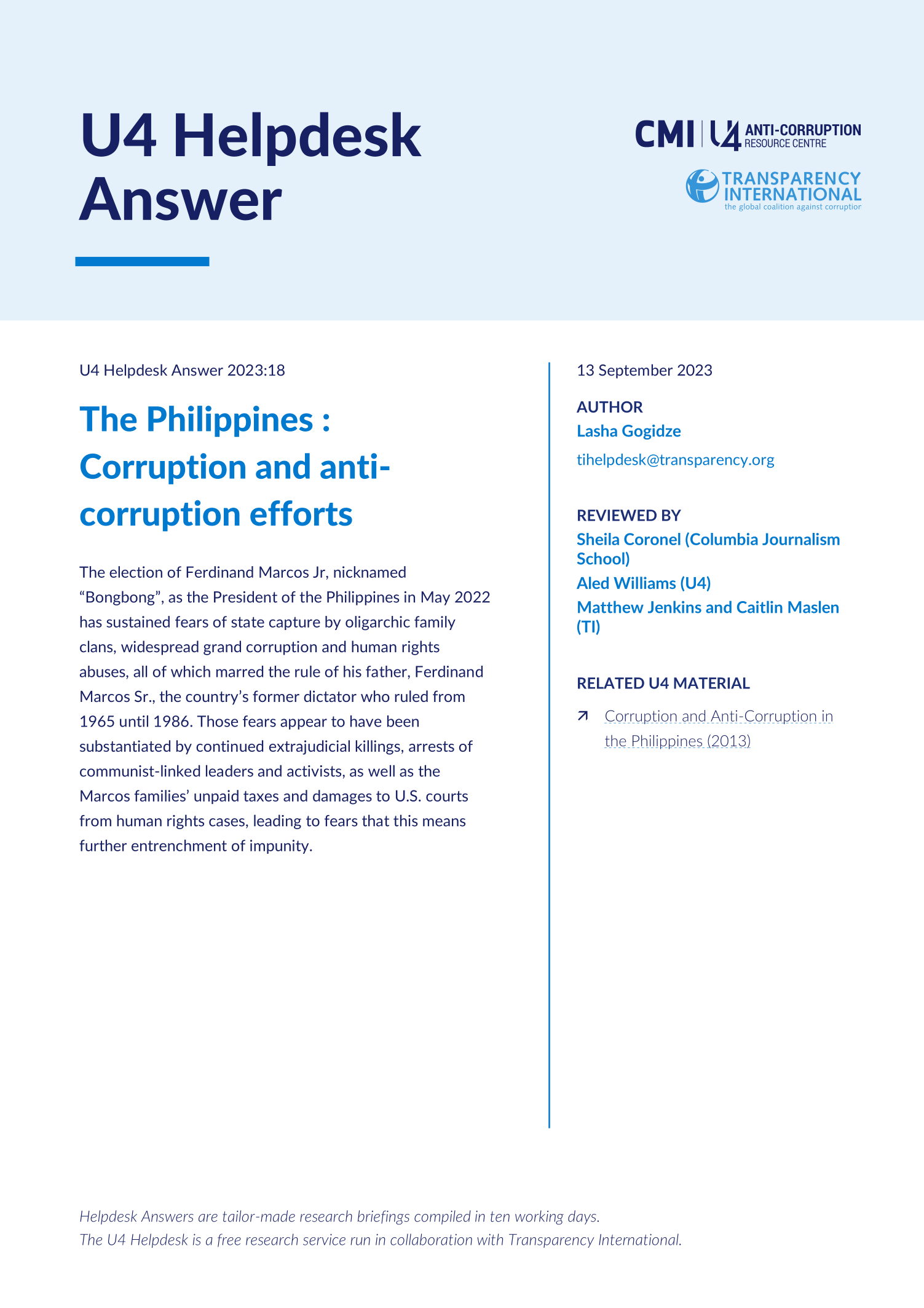Main points
- Since the May 2022 election of Ferdinand Marcos Jr., son of the country's former dictator Ferdinand Marcos Sr., as the President of the Philippines, there has been little sign of improvement in addressing the long-standing issues of widespread corruption and human rights abuses in the country.
- Grand corruption, political corruption, bribery, and strategic corruption stemming from a patronage-based political system, which is run by oligarchic family dynasties and political clans, are entrenched forms of corruption.
- While corruption permeates across all major sectors in the Philippines, judiciary and law enforcement, healthcare, and natural resources are some of the most seriously affected, stifling the country’s democratic and economic progress.
- The lack of independence, resources, and inter-agency coordination hinders the ability of anti-corruption institutions to effectively perform their mandates. Some evidence suggests that they can also be implicated in corruption.
- Businesses are reluctant to criticise the ruling elites. On the contrary, some firms are implicated in corrupt deals with local power brokers and known to engage in illicit economic activities.
- Dissenting voices from the opposition, civil society, media, church, and the academia are often suppressed by the government through harassment, arbitrary arrests, and extrajudicial killings, which perpetuates a culture of impunity. Disinformation is also used as a form of suppression in the country.
